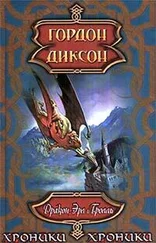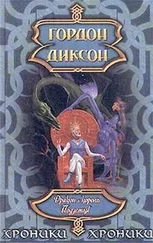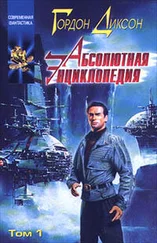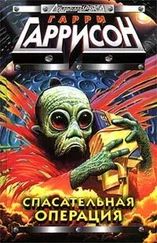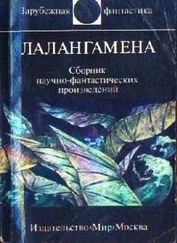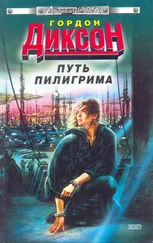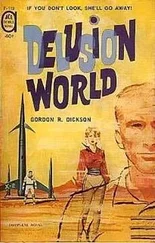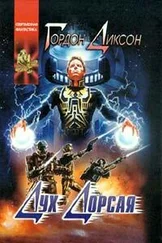Гордон Диксон - Soldier, Ask Not
Здесь есть возможность читать онлайн «Гордон Диксон - Soldier, Ask Not» весь текст электронной книги совершенно бесплатно (целиком полную версию без сокращений). В некоторых случаях можно слушать аудио, скачать через торрент в формате fb2 и присутствует краткое содержание. Год выпуска: 1983, ISBN: 1983, Жанр: Фантастика и фэнтези, на английском языке. Описание произведения, (предисловие) а так же отзывы посетителей доступны на портале библиотеки ЛибКат.
- Название:Soldier, Ask Not
- Автор:
- Жанр:
- Год:1983
- ISBN:0812504003
- Рейтинг книги:3 / 5. Голосов: 1
-
Избранное:Добавить в избранное
- Отзывы:
-
Ваша оценка:
- 60
- 1
- 2
- 3
- 4
- 5
Soldier, Ask Not: краткое содержание, описание и аннотация
Предлагаем к чтению аннотацию, описание, краткое содержание или предисловие (зависит от того, что написал сам автор книги «Soldier, Ask Not»). Если вы не нашли необходимую информацию о книге — напишите в комментариях, мы постараемся отыскать её.
On the sixteen colonized worlds, mankind had changed: men of War on the Dorsai worlds, men of Faith on the Friendly worlds.
Jamethon Black, a Friendly, is a true soldier, and a true man of faith. Now he must face a deadly enemy—an enemy whose defeat will forever separate him from the only woman he has ever loved.
Soldier, Ask Not — читать онлайн бесплатно полную книгу (весь текст) целиком
Ниже представлен текст книги, разбитый по страницам. Система сохранения места последней прочитанной страницы, позволяет с удобством читать онлайн бесплатно книгу «Soldier, Ask Not», без необходимости каждый раз заново искать на чём Вы остановились. Поставьте закладку, и сможете в любой момент перейти на страницу, на которой закончили чтение.
Интервал:
Закладка:
Soldier, Ask Not
Gordon R. Dickson
Chapter 1
Menin aeide thea, Peleiadeo Achileos —begins the Iliad of Homer, and its story of thirty-four hundred years ago. This is the story of the wrath of Achilles .—And this is the story of my wrath; I, Earthman, against the people of the two worlds so-called The Friendlies, the conscript, fanatic, black-clad soldiers of Harmony and Association. Nor is it the story of any small anger. For like Achilles, I am a man of Earth.
That does not impress you? Not in these days when the sons of the younger worlds are taller, stronger, more skilled and clever than we of the Old World? Then, how little you know Earth, and the sons of Earth. Leave your younger worlds and come back to the Mother Planet, once, and touch her. She is still here and still the same. Her sun still shines on the waters of the Red Sea that parted before the Children of the Lord. The wind still blows in the Pass of Thermopylae, where Leonidas with the Spartan Three Hundred held back the hosts of Xerxes, King of the Persians, and changed history. Here, men fought and died and bred and buried and built for more than five hundred thousand years before your newer worlds were even dreamed of by man. Do you think those five centuries of tens-of-centuries, generation upon generation, between the same sky and soil left no special mark on us in blood and bone and soul?
The men of the Dorsai may be warriors above imagining. The Exotics of Mara and Kultis may be robed magicians who can turn a man inside out and find answers outside philosophy. The researchers in hard sciences on Newton and Venus may have traveled so far beyond ordinary humans that they can talk to us only haltingly, nowadays. But we—we duller, shorter, simpler men of Old Earth still have something more than any of these. For we are still the whole being of man, the basic stock, of which they are only the refined parts—flashing, fine-honed, scintillant parts. But parts.
But, if you still are one of those, like my uncle Mathias Olyn, who think us utterly bypassed, then I direct you to the Exotic-supported Enclave at St. Louis, where forty-two years ago, an Earthman named Mark Torre, a man of great vision, first began the building of what a hundred years from now will be The Final Encyclopedia. Sixty years from now will see it too massive and complicated and delicate to endure Earth’s surface. You will start to find it then in orbit about the Mother Planet. A hundred years from now and it will—but no one knows for sure what it will do. Mark Torre’s theory is that it will show us the back of our heads—some hidden part of the basic Earth human soul and being that those of the younger worlds have lost, or are not able to know.
But see for yourself. Go there now, to the St. Louis Enclave, and join one of the tours that take you through the chambers and research rooms of the Encyclopedia Project; and finally into the mighty Index Room at their very center, where the vast, curving walls of that chamber are already beginning to be charged with leads to the knowledge of the centuries. When the whole expanse of that great sphere’s interior is finally charged, a hundred years from now, connections will be made between bits of knowledge that never have been connected, that never could have been connected, by a human mind before. And in this final knowledge we will see—what?
The back of our heads?
But as I say, never mind that now. Simply visit the Index Room—that is all I ask you to do. Visit it, with the rest of the tour. Stand in the center of it, and do as the guide tells you.
— Listen .
Listen. Stand silent and strain your ears. Listen—you will hear nothing. And then finally the guide will break the reaching, almost unendurable silence, and tell you why he asked you to listen.
Only one man or woman in millions ever hears anything. Only one in millions—of those born here on Earth.
But none— no one —of all those born on the younger worlds who has ever come here to listen has ever heard a thing.
It still proves nothing, you think? Then you think wrong, my friend. For I have been one of those who heard —what there was to hear—and the hearing changed my life, as witness what I have done, arming me with self-knowledge of power with which I later turned in fury to plan the destruction of the peoples of two Friendly worlds.
So do not laugh if I compare my wrath to the wrath of Achilles, bitter and apart among the boats of his Myrmidons, before the walls of Troy. For there are other likenesses between us. Tam Olyn is my name and my ancestry is more Irish than otherwise; but it was on the Peloponnesus of Greece that I, like Achilles, grew to be what I became.
In the very shadow of the ruins of the Parthenon, white over the city of Athens, our souls were darkened by the uncle who should have set them free to grow in the sun. My soul—and that of my younger sister, Eileen.
Chapter 2
It was her idea—my sister Eileen’s—that we visit the Final Encyclopedia that day, using my new travel pass as a worker in Communications. Ordinarily, perhaps, I might have wondered why she wanted to go there. But in this instance, even as she suggested it, the prospect struck forth a feeling in me, deep and heavy as the sudden note of a gong—a feeling I had never felt before—of something like dread.
But it was not just dread, nothing so simple as that. It was not even wholly unpleasant. Mostly, it resembled that hollow, keyed-up sensation that comes just before the moment of being put to some great test. And yet, it was this—but somehow much more as well. A feeling as of a dragon in my path.
For just a second it touched me; but that was enough. And, because the Encyclopedia, in theory, represented all hope for those Earth-born and my uncle Mathias had always represented to us all hopelessness, I connected the feeling with him, with the challenge he had posed me during all the years of our living together. And this made me suddenly determined to go, overriding whatever other, little reasons there might be.
Besides, the trip fitted the moment like a celebration. I did not usually take Eileen places; but I had just signed a trainee work-contract with the Interstellar News Services at their Headquarters Unit here on Earth. This, only two weeks after my graduation from the Geneva University of Communications. True, that University was first among those like it on the sixteen worlds of men, including Earth; and my scholastic record there had been the best in its history. But such job offers came to young men straight out of school once in twenty years—if that often.
So I did not stop to question my seventeen-year-old sister as to why she might want me to take her to the Final Encyclopedia, on just that particular day and hour she specified. I suppose perhaps, as I look back on it now, I told myself she only wanted to get away from the dark house of our uncle, for the day. And that, in itself, was reason enough for me.
For it had been Mathias, my father’s brother, who had taken us in, Eileen and me, two orphan children after the death of our parents in the same air-car crash. And it was he who had broken us during our growing years that followed. Not that he had ever laid a finger on us physically. Not that he had been guilty of any overt or deliberate cruelty. He did not have to be.
He had only to give us the richest of homes, the choicest of food, clothing and care—and make sure that we shared it all with him , whose heart was as sunless as his own great, unpierced block of a house, sunless as a cave below the earth’s surface that has never felt the daylight, and whose soul was as cold as a stone within that cave.
Читать дальшеИнтервал:
Закладка:
Похожие книги на «Soldier, Ask Not»
Представляем Вашему вниманию похожие книги на «Soldier, Ask Not» списком для выбора. Мы отобрали схожую по названию и смыслу литературу в надежде предоставить читателям больше вариантов отыскать новые, интересные, ещё непрочитанные произведения.
Обсуждение, отзывы о книге «Soldier, Ask Not» и просто собственные мнения читателей. Оставьте ваши комментарии, напишите, что Вы думаете о произведении, его смысле или главных героях. Укажите что конкретно понравилось, а что нет, и почему Вы так считаете.
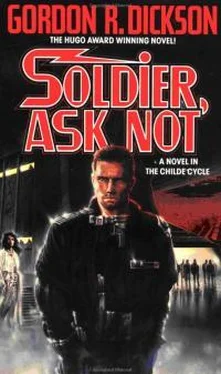
![Гордон Диксон - Некромант [Некромансер; Нет места человеку]](/books/4913/gordon-dikson-nekromant-nekromanser-net-mesta-che-thumb.webp)
